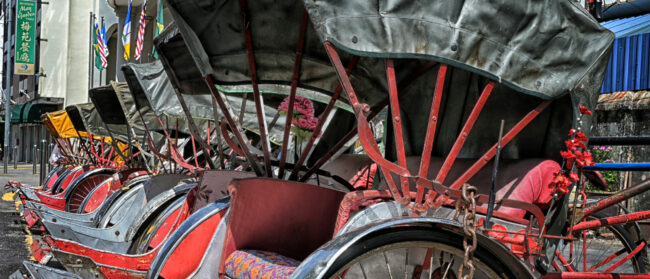Tony* was only 10 years old when he first experienced sexual harassment. He was playing football on the beach with a group of other boys when they all decided to enter a nearby building to take some rest. There, Tony’s life changed forever.
“He was so traumatised that he wouldn’t talk for days,” said Sierra James, a co-founder of the non-profit organisation, Ba Futuro, who went to the beach with Tony and other relatives that day.
About a week later, Tony felt safe enough to tell James what had happened in that building. One of the football players, an 18-year-old boy, molested him and threatened to kill him if he told anyone. James said that these kinds of stories are not uncommon in Timor-Leste, a country with one of the highest rates of child abuse in the region.
“It is normal to beat your children or your students here,” said Johana Paula Shinta Dewi, program coordinator of the Nabilan Program at The Asia Foundation, a prominent non-profit organisation in the Asia-Pacific region. She added that having been victims of violence themselves, most adult Timorese resort to harsh methods to educate their children.
“Violence is still very much part of our culture, unfortunately,” she said
Although Shinta Dewi, a child protection expert, has learned to control her impulse to respond with violence when her children misbehave. She admits that her upbringing, one that was full with abuse, still haunts her every day.
“I was also a victim of violence, and until now the trigger to use it against my children is here all the time,” she said. “But I know how bad it was and I don’t want my children to suffer as we did. It is a trauma that haunts you for the rest of your life.”
A history of violence
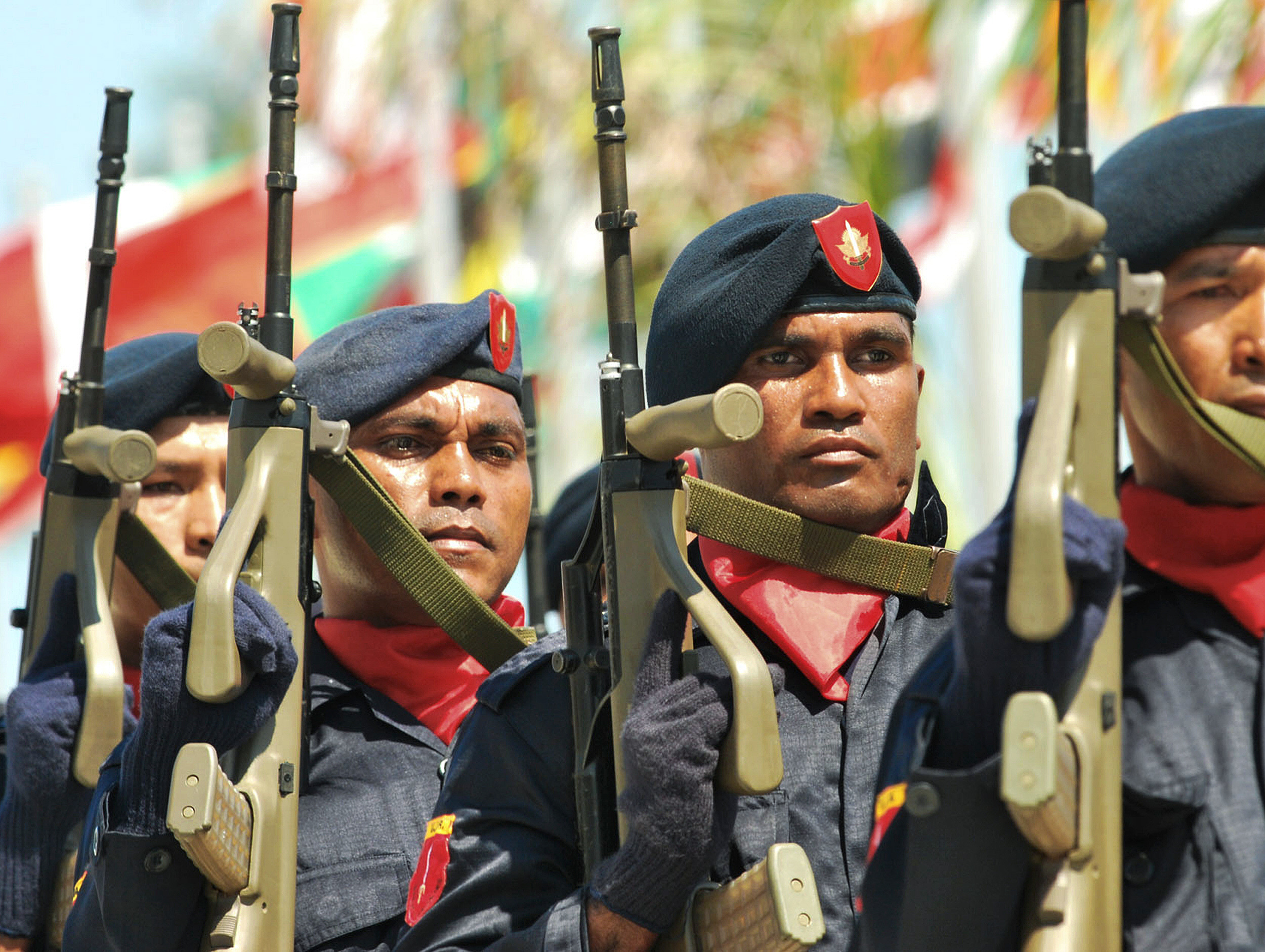
The majority of Timor-Leste’s population has lived through Indonesian occupation. During that era, physical assault and sexual abuse were used as war weapons and means to traumatise the country, according to Shita Dewi,
Following centuries of Portuguese colonisation, which culminated in a bloody conflict that lasted 24 years, Timor-Leste is still recovering from what many historians, lawyers, and international human rights experts believe was a genocide.
From the first Indonesian attack in 1975 to the referendum for independence in 1999, the conflict resulted in more than 250,000 deaths by killings, starvation, sexual violence, and arson, a number which amounted to around 20% of the population. The country has been left with scars that are yet to heal.
Despite being referred to as the ‘most democratic’ country in Southeast Asia, violence remains a constant factor in the lives of Timorese survivors and their families. Strikingly high rates of sexual and domestic harassment as well as child sexual abuse remain one of the most pressing issues facing the country today.
However, due to stigma and strong conservative Catholic beliefs, open discussion about such topics is often out of the question, especially if it involves members of the church.
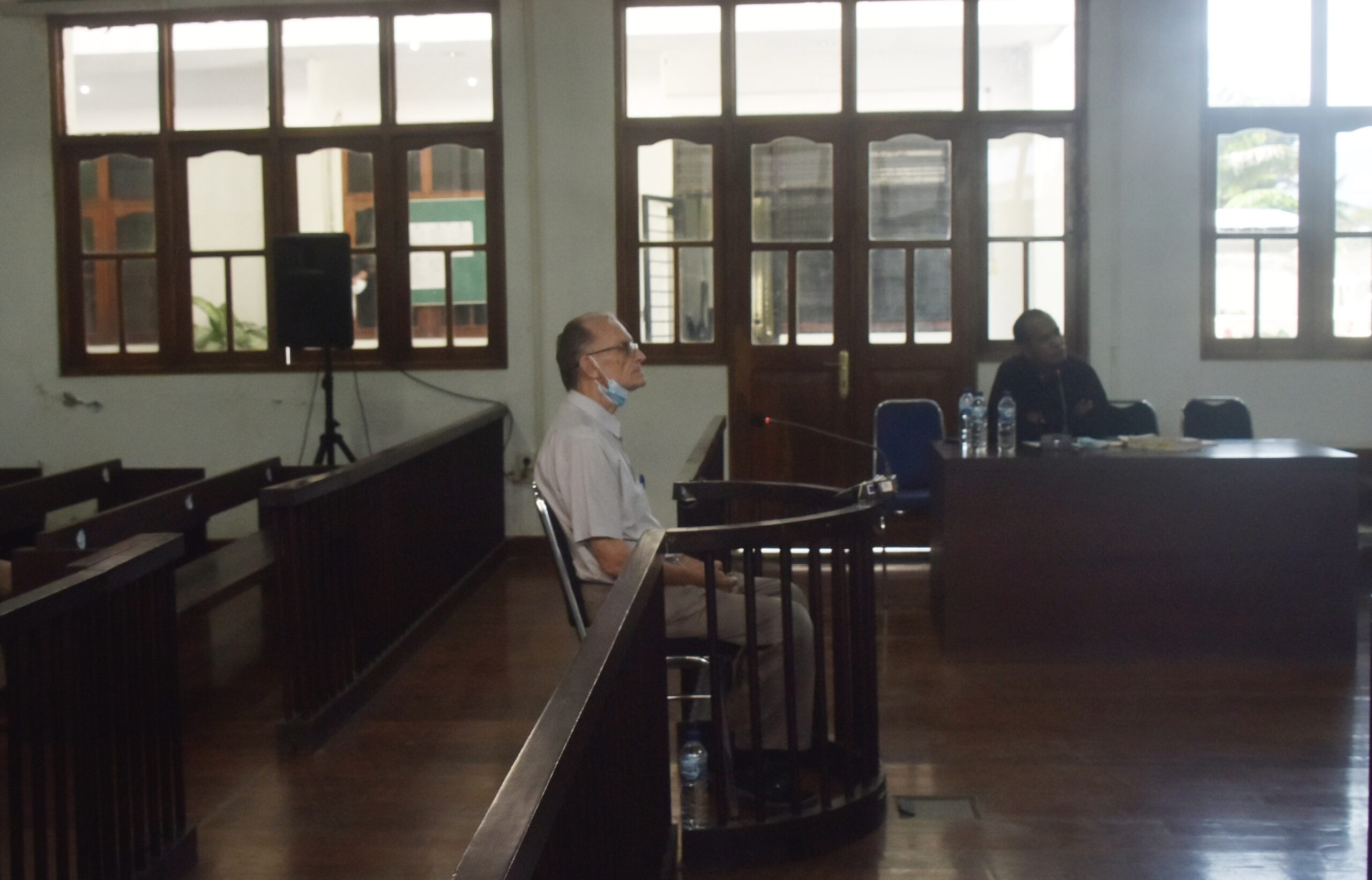
Yet things seem to be slowly changing as a number of child sexual abuse cases were recently taken up to high courts attracting international attention. Most notorious was the case of former priest Richard Daschbach, who was unfrocked for abusing hundreds of Timorese children from 1992 to 2018. He was sentenced to 12 years in jail in late 2021 by an American court for sexually abusing 14 girls under aged 14, child exploitation and domestic violence.
He was the first cleric in Timor-Leste to be prosecuted for child sexual abuse.
While Daschbach is serving his sentence, Nobel Peace Prize winner Bishop Carlos Filipe Ximenes Belo has come under the spotlight.
Belo was accused last September of sexually abusing underage Timorese boys for two decades. Following the accusation, the Vatican immediately announced that Belo’s behaviour had been reported and the priest had already been reprimanded back in 2019.
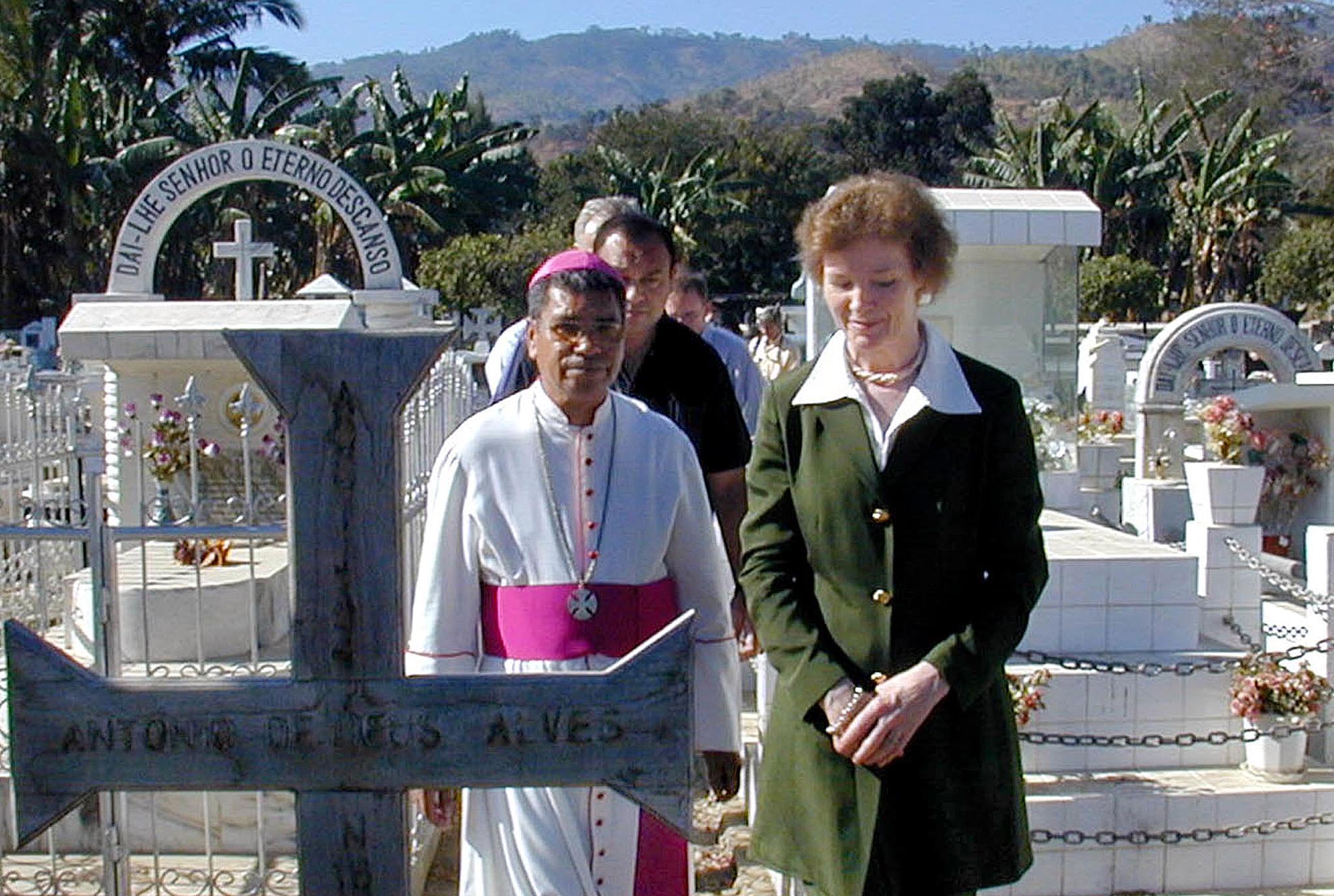
However, months after the investigative report by the dutch paper De Groene Amsterdammer, revealed the abuse, nobody wanted to talk about it, said Juliana ‘Lica’ Marcal, country director at Ba Futuro, (“For the Future”), a prominent national non-profit organisation focused on peacebuilding, gender empowerment, child protection education, and teacher training.
“He has always been a role model for the Timorese people, a person to look up to,” she said. “People don’t believe the accusations, or rather, they don’t want to believe.”
Finding peace
The key to a safer future for Timorese youths is social engagement, according to Marcal, who has been supervising and managing child protection activities at Ba Futuro for almost 20 years. The team is also working with local safe houses for victims of violence, and in recent years, it started cooperating with government and police to strengthen the national reporting system.
Marcal said that all this work on training and awareness must also reach remote communities. While in the capital Dili, youths and families can more easily access safe houses and are more aware of sexual and domestic violence as criminal activities, people in the countryside have no such exposure.
“We need to create clear pathways for all children. Especially for those far away, who often feel isolated and are unaware of being victims of abuse,” Marcal said.
Ba Futuro, among other local child development organisations, leads a number of social behaviour programs through films, art, and other workshops. But the church’s permeating presence in the community often becomes an obstacle to an open discussion on rape, sexual harassment or sex education, according to James.
Because the Catholic church is highly respected and its members revered, it’s not uncommon for families to send their children to live in church-run orphanages until they are ready to work or marry. But this arrangement can sometimes lead to more abuse, as shown from the recent history and the increased publicity of cases of child sexual abuse by clerics, such as former priest Daschbach and Bishop Belo.
“We worked a lot with those institutions at the beginning,” James said. “While some of them were very institutional – in a bad way– others were basically set up to serve the nuns who ran the place. Children very often became the nuns’ servants.”
Although cases of abuse are decreasing, the situation remains a concern across the country.
A problem with abuse
But the issue is not limited to conservative religious beliefs, according to Marcal.
“Violence is everywhere in Timor-Leste,” she said.
In 2018, UNICEF reported that two out of every three women between ages 15 and 19 experienced physical or sexual violence. Another report by The Asia Foundation found that 90% of Timorese people had experienced violence before their 19th birthday in 2015. This percentage has dropped only by 2.6% over the following three years, according to a 2019 report by World Vision International. The document still referred to violence against children in Timor-Leste as “exceptionally high.”
But local non-profits and experts fear the reported cases are just a minor percentage of the actual number of incidents.
Alex Tilman, the partnership and development finance officer at UN Timor-Leste, told the Globe that the number of abuse cases is likely much higher than what is reported.
“People almost never report these events,” he said. “Much less if they involve church members.” Schools, homes, and religious gatherings are where children are most vulnerable, Tilman explained. According to his experience, it’s common and normalised for teachers or school directors to abuse children in Timor-Leste. And when children report it to the family or the village, the blame often falls on the children themselves.
“If cultural beliefs tell family and villagers that it was the child who provoked the teacher, he or she should have behaved better, why would a family report the abuse at all?” Tilman said.
He also believes that even in the rare cases when a victim reports abuse, the system is neither strong nor reliable enough to pursue convictions for the abusers. Tilman pointed to one case where a Catholic high school principal allegedly abused multiple underage girls at a school in Dili in 2014.
Eight years later, the principal is still working at the same school, and no disciplinary action has ever been taken against him. On the contrary, his actions were supported by a member of parliament who released a highly controversial comment to the press: “Are you a man or a woman? A man is a man. Only homosexuals don’t enjoy it.”
As Catholicism deeply runs through the country’s culture, Timor-Leste condemns sex outside of marriage, and it’s seen as an inviolable rule. James has often witnessed how this has become a factor in a widely spreading a culture of sexual abuse.
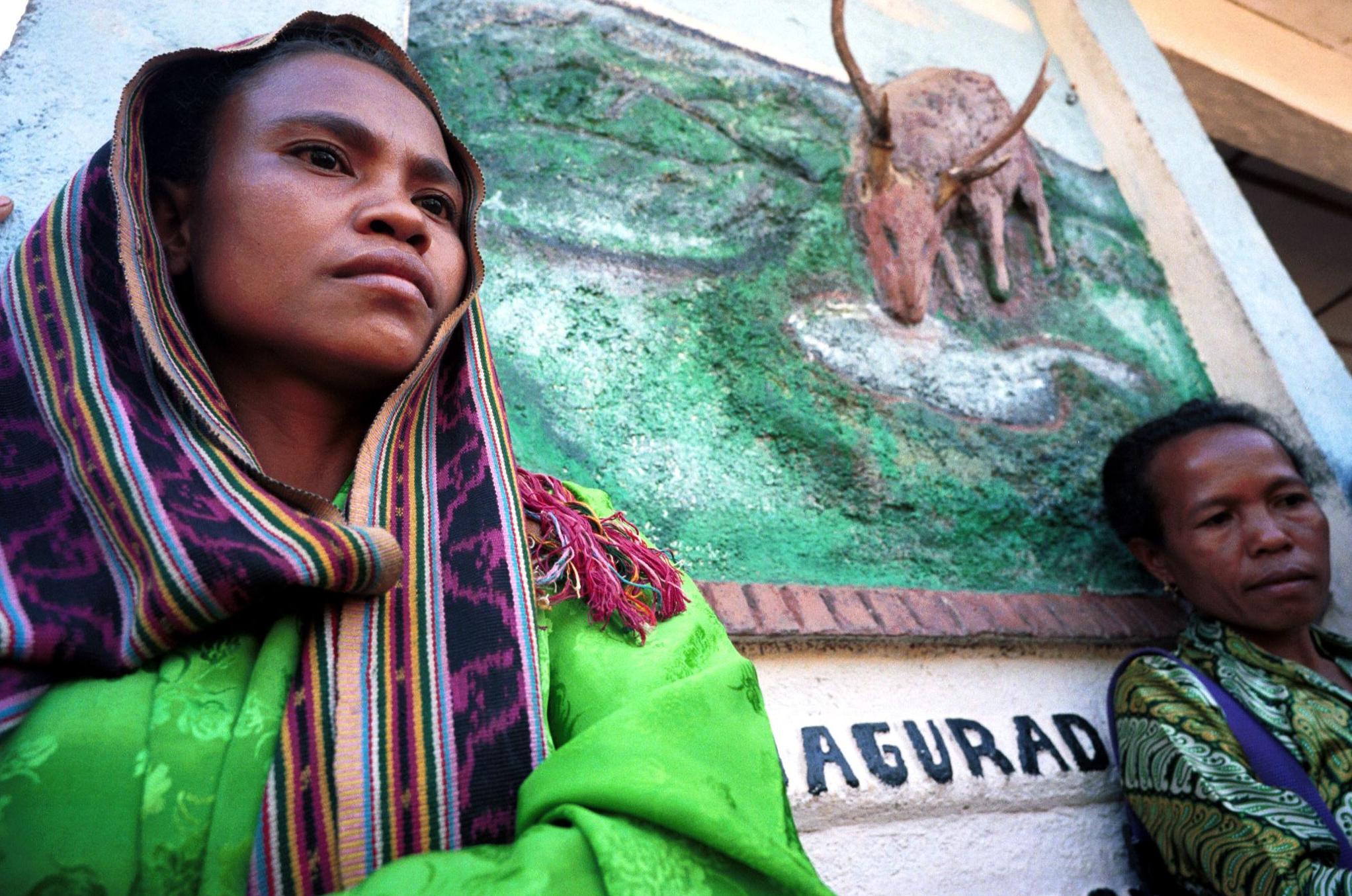
“I can’t even count all the times I walked on the road and a man grabbed my butt or my breasts,” James said.
She said that gay or gender-fluid people in remote villages were often seen by men as individuals to “experiment with,’ as the culture pressures them to wait for marriage before having sexual relations with women.
According to Shinta Dewi, reporting to the village chief, often the closest authoritative power in remote communities, or family, is not a conceivable option for many victims of abuse It’s partly because sexual violence is still taboo in Timor Leste, partly because of a culture of respect for the elders, and finally because speaking up could ruin the family’s reputation. Consequently, Shinta Dewi stressed that villagers and family members are often the main perpetrators.
“They are people close to them; teachers, neighbours, relatives, but more often close family members, like fathers, step-fathers, or older siblings,” Shinta Dewi said. “That is why cases of incest are extremely high among young girls in remote areas here.”
Shinta Dewi said that following the enactment of the Law against Domestic Violence in 2010, when the government began training the police, the number of shelters slowly increased, and inter-agency cooperation grew stronger.
While in the first five years, the community started to learn about how to find help in case of abuse, just recently, people have begun reporting to the authorities and actively seeking help. This has facilitated the gathering of data by local institutions, which are discovering a growing number of incest cases.
While progress has been made across all sectors, experts say the nation needs more time to effectively learn a nonviolent approach to solving domestic problems.
International donors like the EU and World Bank “don’t seem to understand the length of this process,” Shinta Dewi added, noting their support only lasts between one and three years. Ultimately, it will take time before violence is widely viewed as unacceptable.
“We saw lots of progress over the past two decades, but that doesn’t change the fact that violence is part of our culture, and thus really difficult to eradicate.”
A pseudonym was used for *Tony for privacy and child protection purposes.

